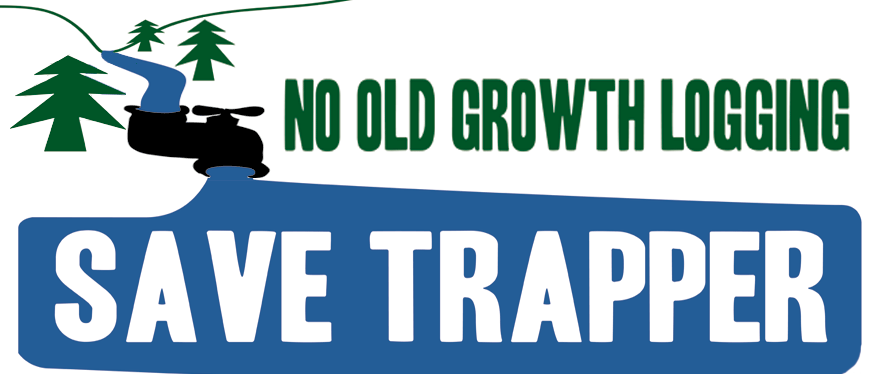Putting Clean Water and Old Growth Forests Before Profits
The 157-acre Trapper timber sale, located on the McKenzie District of the Willamette National Forest, threatens the clean water supply of Eugene and Springfield, as well as some of the last native and old growth forests in Oregon. Seneca Jones, a Eugene-based timber company, bought rights to the trees in 1999. The sale has been controversial ever since.
We are an all-volunteer group of citizens working to support the current legal battle to save Trapper by spreading public awareness and pressuring the Forest Service to drop the sale and protect Oregon's clean water and old growth forests. Click the button to the right to tell the Forest Service what you think about logging old growth on public land! Click Get Involved to learn more ways show your support for the campaign.
If anyone wants to get involved in defending our native forest and drinking supply you are welcome to come to a meeting on Sunday, August 29th at 6pm at Charnel Mulligan City Park (17th and Charnelton in Eugene). Email
savetrapper10@gmail.com with any questions.
A 149 acre timber sale in the Willamette National Forest that is situated on water that feeds into the McKenzie watershed called "Trapper" is slated to be logged in September. Most of the forest was burned 150 years ago resulting in the stand we see today consisting of re-growth with surviving old growth. In the summer of 2005 the Northwest Ecosystem Survey Team (NEST) surveyed the sale for red tree vole nests.
Red Tree Voles are small rodents that live in the canopies of old growth Douglas Fir trees that serve as 70% of the Spotted Owl's diet. Finding an active vole nest ensures a 10 acre buffer zone around the tree that can not be cut down. NEST documented nests and turned them in just past the closing of the public comment. Because the period was over, all of the collected data was ignored by the Forest Service, enabling logging to move forward.
In addition to being habitat to the threatened spotted owl and near threatened red tree vole, Trapper is along creeks that feed into the source of Eugene's drinking water. Logging produces both organic and inorganic pollution. Chemical pollutants, including but not limited to gasoline, wash off of equipment straight into water sources. Silt from the disrupted ground pollutes and overwhelms the water, turning it from clean drinking water to a murky mess.
CFD 2010
Call Meg Mitchell, Willamette Natl. Forest Supervisor, at 541 225 6300. Call Seneca Sawmill at 541 689 1011 and ask to speak to Rick Rae.
Demand protection of native forests! Demand clean water! Demand that Trapper remain wild!





